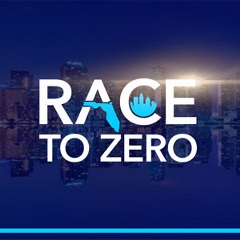The Florida League of Cities has awarded 22 municipal scholarships for the inaugural Florida Race to Zero Cohort. This program will help cities on their path to sustainability.
 The Florida League of Cities announced 22 municipalities will receive scholarships to join the Florida Race to Zero cohort, a friendly competition between municipalities to showcase how they are leading the way to carbon neutrality. The scholarships are provided by the League and will allow the selected municipalities to access the technical assistance and expertise of national and regional organizations.
The Florida League of Cities announced 22 municipalities will receive scholarships to join the Florida Race to Zero cohort, a friendly competition between municipalities to showcase how they are leading the way to carbon neutrality. The scholarships are provided by the League and will allow the selected municipalities to access the technical assistance and expertise of national and regional organizations.
The scholarship recipients will join a Florida Race to Zero “cohort” – a structured, technical assistance training program that will guide participants toward tangible results. Each city will receive assistance with conducting greenhouse gas inventories, developing science-based targets, developing and implementing an action plan, reporting results and more. Learn More
The municipalities receiving League scholarships are: